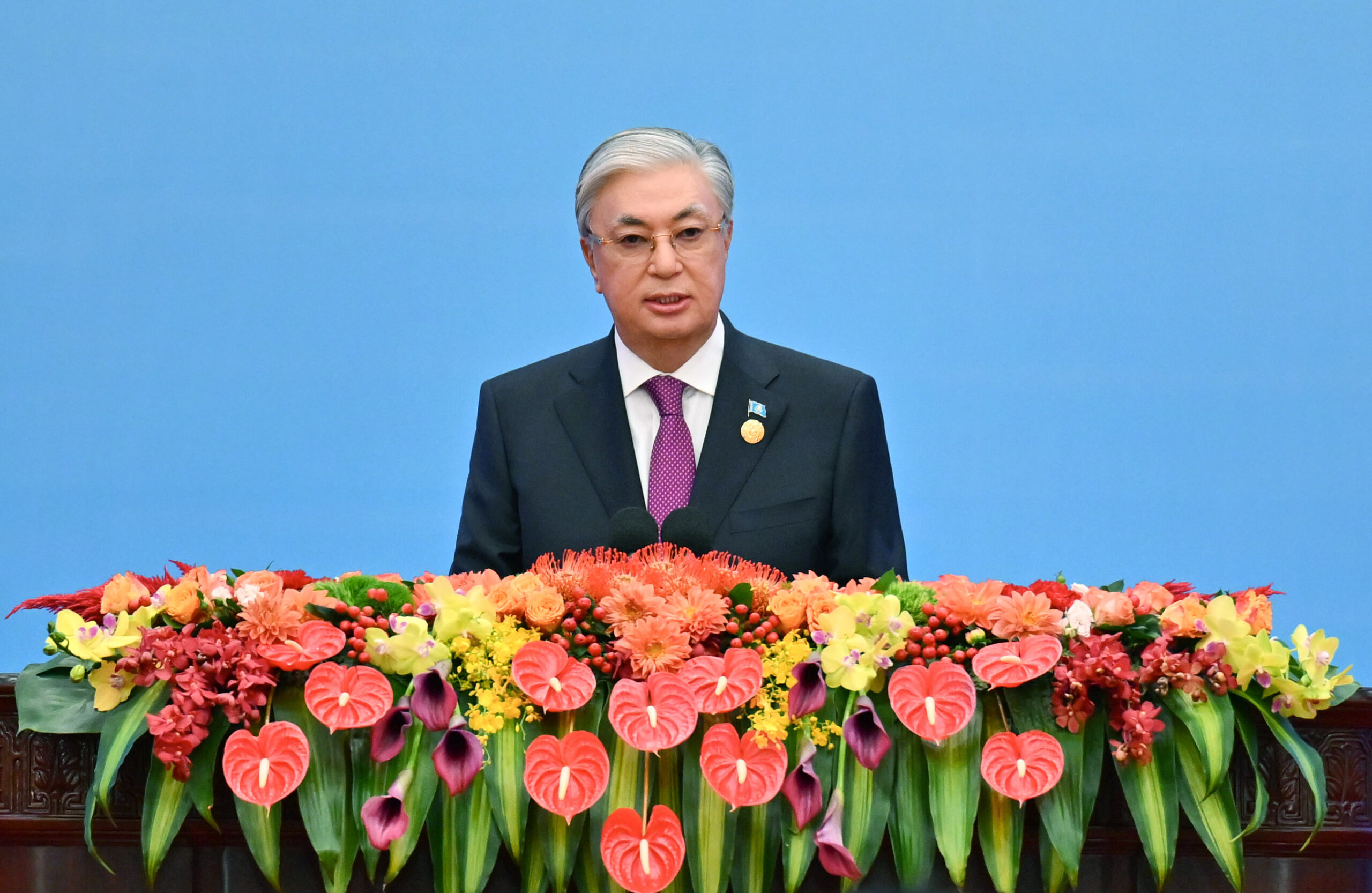ASTANA – Kazakhstan plans to lay 1,300 kilometers of new railway lines within three years, open a third railway checkpoint at the Chinese border, and build new dry ports Bakhty and Kalzhat, said President Kassym-Jomart Tokayev during the third Belt and Road Forum for International Cooperation in Beijing on Oct. 18, reported the Akorda press service.

Kassym-Jomart Tokayev at the third Belt and Road Forum for International Cooperation in Beijing. Photo credit: Akorda.
As the world’s largest landlocked country and sharing an extensive border with China, Kazakhstan is ready to become a vital international transport and logistics hub, accounting for approximately 85% of all land transit traffic from China to Europe, Tokayev noted.
According to him, so far, the country has allocated over $35 billion in the past 15 years to deliver such large infrastructure projects as the Kazakh-Chinese logistics center in Lianyungang, the Khorgos dry port, the Western Europe – Western China transit highway, and the railway corridor from China to Iran.
The President highlighted the Trans-Caspian International Transport Route (TITR). This flagship project can evolve into a “continental bridge of the Belt and Road,” significantly reducing cargo transportation time and costs.
Aiming to coordinate joint efforts more effectively within two intergovernmental agreements recently signed with China, Tokayev offered to create a partnership network of large strategic ports, logistics centers, and postal hubs and also establish joint production of transport ships and containers.
“Kazakhstan is ready to become a reliable air bridge and a convenient harbor for the world’s leading airlines, ensuring sustainable passenger and cargo traffic,” he stated.
The President mentioned a new global project – Digital Silk Road – expressing confidence that the latest digital and intellectual interaction model will significantly contribute to innovative economic development.
Tokayev said Kazakhstan is committed to working for shared success in a new decade of the Belt and Road Initiative, the megaproject of the 21st century that sparked the renaissance of the Great Silk Road.
The President noted the initiative has become an effective platform for unprecedented large-scale international cooperation, connecting over 150 countries in Asia, Europe, and Africa through an extensive network of railways, high-speed highways, and sea routes.
“The project has become a common benefit for our states, which can provide an effective response to the most complex challenges of our time amid global economic turbulence,” he shared.
Tokayev added that this initiative promotes cultural and humanitarian ties and strengthens good neighborliness, friendship, and mutual understanding among the countries.
The President called it highly symbolic that ten years ago, it was in Kazakhstan that China introduced this far-reaching initiative, thus becoming its main driving force and a locomotive of economic and technological development.
China’s leader Xi Jinping, Russia’s President Vladimir Putin, Indonesia’s President Joko Widodo, Argentine President Alberto Fernández, Ethiopia’s Prime Minister Abiy Ahmed, and United Nations Secretary-General António Guterres also delivered their remarks at the forum, which gathered more than 20 leaders, and representatives of over 130 countries and international organizations.

